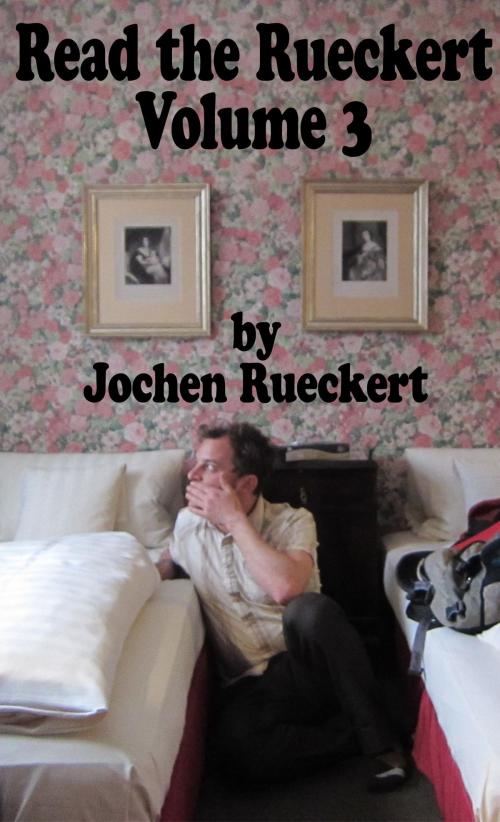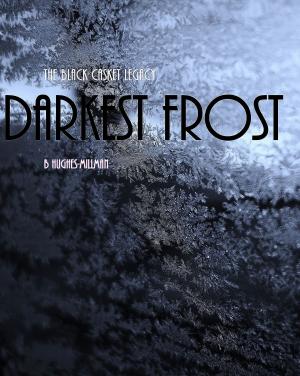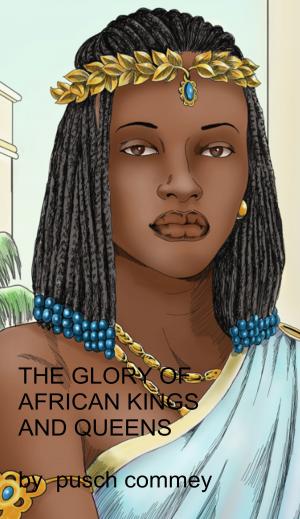| Author: | Jochen Rueckert | ISBN: | 9781624885402 |
| Publisher: | BookBaby | Publication: | December 1, 2012 |
| Imprint: | Language: | English |
| Author: | Jochen Rueckert |
| ISBN: | 9781624885402 |
| Publisher: | BookBaby |
| Publication: | December 1, 2012 |
| Imprint: | |
| Language: | English |
Since Jochen Rueckert published his first volume of travel notes and photos in 2006, the general situation facing the traveling musician has by no means become rosier. Security checks have become more rigorous and groin-bound, mileage benefits have been trimmed, and backstage culinary options slashed. On top of all these, Rueckert has been ticking off dozens more cities on his world touring map, amassing ammunition aplenty for a new volume of notes from the road. And what about the man himself? Enduring such hardships surely leaves a mark on anyone. It is now up to us, the readers, to ascertain just how this has influenced Rueckert the man, and Rueckert the astute observer. Has he mellowed over time? Has his heart warmed somewhat to the armies of ineptitude he faces on his travels? Or has his language been soaked in sarcasm and irony in order to retreat from facing the head on? Is he still standing tall and hitting just as hard with his pen as with his sugar maple drum stick? The front cover gives us the first clue. Rueckert’s hand is over his mouth as he looks out at the unseen atrocities through another sealed hotel window. We will never know exactly what kind of trepidations it is he is perceiving, or if he is but recalling all he had witnessed on the tour thus far, but the scene evokes the voice of Conrad’s Marlow hearing the dying Kutz whisper “The horror! The horror!”. A figure has journeyed to the end of river Styx and glimpsed the black depths of the soul. The rosy wallpaper only serves to amplify the inner prison of Rueckert, now claustrophobically surrounded by Scylla and Charybdis in the form of cheap single hotel beds. By simply observing the photo of these beds, one can feel one’s back begin to ache. Rueckert may be better off staying where he is. In short, the scene is set for yet another nightmare. The work begins with a series of Rueckert’s hotel shots. His own description reads “pictures taken first shot self-timer only, one per room, 2011-2012”. This gives us not only an insight as to the techniques used but also as to the creator himself. Here is a man who lays down for himself and, as the book makes amply clear, others around him, clear limits of expression. In the cell-like confines of the mainly 3-star hotel rooms Rueckert has photographed, this limiting has forced him to search for new perspectives. In Bocholt, he shoots from the ground up, in Lausanne he shoots through a ventilation fan and creates a beautiful unique print. Over the course of these touring years and with his own almost neurotic routines of documentation, he has been able to squeeze every last drop of juice out of the hotel room’s photographic single-shooter potential. The murky view from the window in Vaasa could honestly be anywhere on the planet now. Some four-storied buildings, three-lanes roads, traffic, light drizzle. Some may call it the simple a tranquil city scene. Others might tend to regard it as the perfect representation of the modern enslavement of man. There is no one on the streets. The public man has fallen and been banished to his air-conditioned private nightmare. It could just as well be an apocalyptic wasteland and it is through this dismal backdrop that Rueckert will soon have to carry his cymbal bag and his exhausted body to his next jazz gig in front of a meagre grey crowd. By this stage we are feeling real empathy with our protagonist. We could evoke the deeper symbolism of the round angelic light in Pezanes, or the empty white wine bottle in Guimares, but Rueckert’s facial expression in the “2012 Montreal” work gives us the deepest insight into the inner workings of the touring drummer. Again, he is looking beyond the frame at some object in the room, but he could just as well be staring into the empty void. It is the gaze of one who has been to the depths of the abyss and only just returned. He may still swing and speak and write- but he has seen something which has marked his soul. What could that be?
Since Jochen Rueckert published his first volume of travel notes and photos in 2006, the general situation facing the traveling musician has by no means become rosier. Security checks have become more rigorous and groin-bound, mileage benefits have been trimmed, and backstage culinary options slashed. On top of all these, Rueckert has been ticking off dozens more cities on his world touring map, amassing ammunition aplenty for a new volume of notes from the road. And what about the man himself? Enduring such hardships surely leaves a mark on anyone. It is now up to us, the readers, to ascertain just how this has influenced Rueckert the man, and Rueckert the astute observer. Has he mellowed over time? Has his heart warmed somewhat to the armies of ineptitude he faces on his travels? Or has his language been soaked in sarcasm and irony in order to retreat from facing the head on? Is he still standing tall and hitting just as hard with his pen as with his sugar maple drum stick? The front cover gives us the first clue. Rueckert’s hand is over his mouth as he looks out at the unseen atrocities through another sealed hotel window. We will never know exactly what kind of trepidations it is he is perceiving, or if he is but recalling all he had witnessed on the tour thus far, but the scene evokes the voice of Conrad’s Marlow hearing the dying Kutz whisper “The horror! The horror!”. A figure has journeyed to the end of river Styx and glimpsed the black depths of the soul. The rosy wallpaper only serves to amplify the inner prison of Rueckert, now claustrophobically surrounded by Scylla and Charybdis in the form of cheap single hotel beds. By simply observing the photo of these beds, one can feel one’s back begin to ache. Rueckert may be better off staying where he is. In short, the scene is set for yet another nightmare. The work begins with a series of Rueckert’s hotel shots. His own description reads “pictures taken first shot self-timer only, one per room, 2011-2012”. This gives us not only an insight as to the techniques used but also as to the creator himself. Here is a man who lays down for himself and, as the book makes amply clear, others around him, clear limits of expression. In the cell-like confines of the mainly 3-star hotel rooms Rueckert has photographed, this limiting has forced him to search for new perspectives. In Bocholt, he shoots from the ground up, in Lausanne he shoots through a ventilation fan and creates a beautiful unique print. Over the course of these touring years and with his own almost neurotic routines of documentation, he has been able to squeeze every last drop of juice out of the hotel room’s photographic single-shooter potential. The murky view from the window in Vaasa could honestly be anywhere on the planet now. Some four-storied buildings, three-lanes roads, traffic, light drizzle. Some may call it the simple a tranquil city scene. Others might tend to regard it as the perfect representation of the modern enslavement of man. There is no one on the streets. The public man has fallen and been banished to his air-conditioned private nightmare. It could just as well be an apocalyptic wasteland and it is through this dismal backdrop that Rueckert will soon have to carry his cymbal bag and his exhausted body to his next jazz gig in front of a meagre grey crowd. By this stage we are feeling real empathy with our protagonist. We could evoke the deeper symbolism of the round angelic light in Pezanes, or the empty white wine bottle in Guimares, but Rueckert’s facial expression in the “2012 Montreal” work gives us the deepest insight into the inner workings of the touring drummer. Again, he is looking beyond the frame at some object in the room, but he could just as well be staring into the empty void. It is the gaze of one who has been to the depths of the abyss and only just returned. He may still swing and speak and write- but he has seen something which has marked his soul. What could that be?















